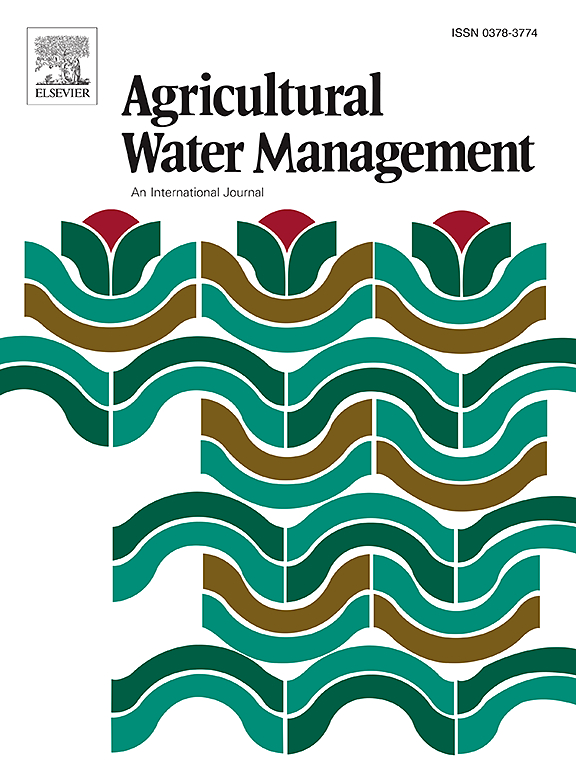伊朗西部农民对水资源短缺的适应行为:价值-认同-个人规范模型的应用
IF 6.5
1区 农林科学
Q1 AGRONOMY
引用次数: 0
摘要
水资源短缺是粮食安全和可持续农业的主要威胁。最脆弱的群体是农民,他们日益受到缺水的不利影响。在这个问题上,农民需要适应缺水。因此,了解影响农民适应行为的因素具有重要意义。因此,本研究旨在确定显著影响农民对水资源短缺适应行为的结构。为此,我们采用了价值观-身份-个人规范(VIP)模型,并增加了环境自我效能感的构建。在位于伊朗西部地区的克尔曼沙赫省进行了一项调查。本研究采用多阶段整群随机抽样方法收集数据。研究样本包括380名灌溉小麦的农民。结构方程建模分析表明,在模型中加入环境自我效能结构,可将水资源短缺适应行为的解释能力提高9.3% %,总体上可解释43% %的适应行为。这项研究的发现有助于现有的适应行为知识体系,特别是在缺水的背景下。实际上,本研究为将生物圈价值、个人规范、环境自我认同和环境自我效能纳入政策制定和决策过程,鼓励农民采取水资源短缺适应措施提供了理论依据。本文章由计算机程序翻译,如有差异,请以英文原文为准。
Farmers' adaptation behavior to water scarcity in Western Iran: Application of the values-identity-personal norms model
Water scarcity is a major threat to food security and sustainable agriculture. Among the most vulnerable groups are farmers, who are increasingly exposed to the adverse impacts of water Scarcity. Regarding this issue, farmers need to adapt to water scarcity. Thus, understanding the factors influencing farmers' adaptative behavior is important. Therefore, this research aimed to determine the constructs that significantly affect the farmers' adaptative behavior to water scarcity. To achieve this, we used the Values-Identity-Personal Norms (VIP) model and added the construct of environmental self-efficacy. A survey was conducted in Kermanshah Province, located in the western region of Iran. Data for this study were gathered using a multi-stage cluster random sampling method. The study sample consisted of 380 irrigated wheat farmers. Structural equation modeling analysis showed that adding the environmental self-efficacy construct to the model, increased the explanatory power of water scarcity adaptation behavior by 9.3 %, and in total, 43 % of adaptive behavior was explained. The findings of this research contribute to the existing body of knowledge on adaptive behavior, particularly in the context of water scarcity. Practically, the current study provides a rationale for incorporating biospheric value, personal norms, environmental self-identity, and environmental self-efficacy into policy-making and decision-making processes, encouraging farmers to adopt water scarcity adaptation measures.
求助全文
通过发布文献求助,成功后即可免费获取论文全文。
去求助
来源期刊

Agricultural Water Management
农林科学-农艺学
CiteScore
12.10
自引率
14.90%
发文量
648
审稿时长
4.9 months
期刊介绍:
Agricultural Water Management publishes papers of international significance relating to the science, economics, and policy of agricultural water management. In all cases, manuscripts must address implications and provide insight regarding agricultural water management.
 求助内容:
求助内容: 应助结果提醒方式:
应助结果提醒方式:


